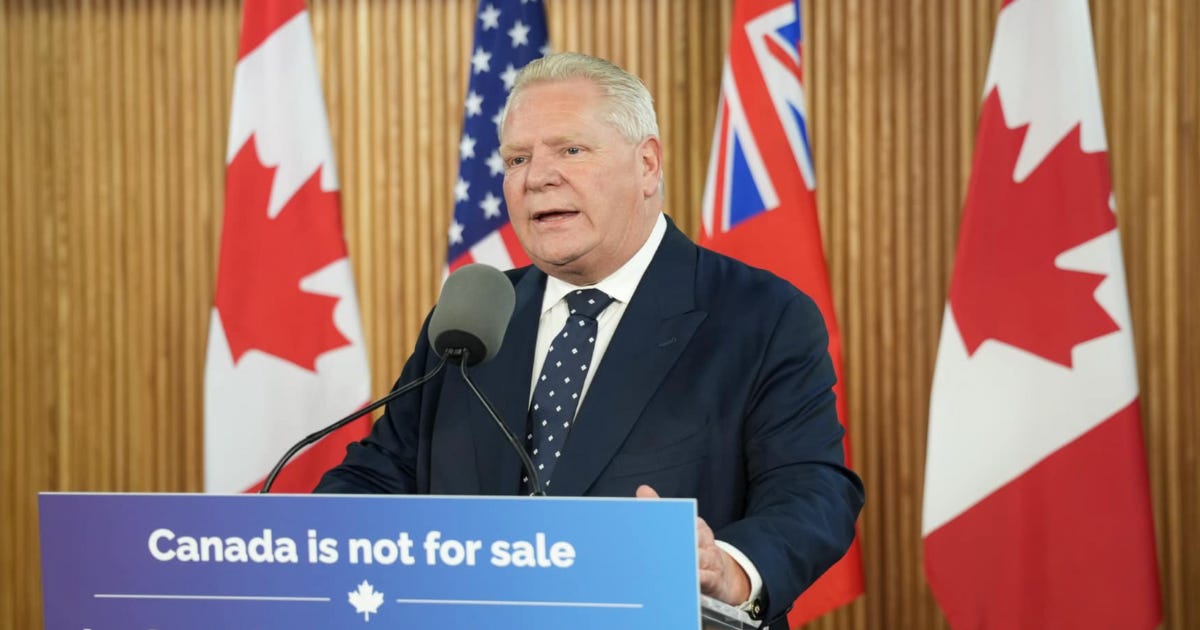Ontario tax burden higher under Ford than during Wynne years
Ontario Premier Doug Ford has surpassed even his predecessor Kathleen Wynne when it comes to the tax burden placed on the province’s taxpayers.
Ontario Premier Doug Ford has surpassed even his predecessor Kathleen Wynne when it comes to the tax burden placed on the province’s taxpayers.
According to a Mar. 11t report published by the Fraser Institute, Ontario’s tax burden per resident is nearly $700 higher this year than in 2017, the final year of former Liberal premier Kathleen Wynne.
Ontario’s tax burden has risen under Ford’s watch, despite his repeated promises to be fiscally responsible and cut taxes for workers and small businesses in the past three elections.
The Fraser report states that provincial tax revenue as a share of GDP has increased from 12.1 per cent in 2017-18 under the Wynne Liberals to 13.0 per cent in 2023-24 under Ford,
Projections suggest it could reach 13.4 per cent at the end of the current fiscal year.
In last month’s election, Ford's Progressive Conservatives won 80 seats, granting Premier Ford his third consecutive majority, the first time an Ontario Premier has done so since 1959 under former PC premier Leslie Frost.
Ford has promised to increase spending on border security and economic stimulation programs but has provided little detail on how he would pay for these commitments.
Additionally, the inflation-adjusted tax burden per Ontarian has also climbed. In 2017-18, the final year of the previous government, the per-person tax revenue was $8,736. That figure rose to $9,307 in 2023-24 and is projected to reach $9,406 in 2024-25.
Ontario’s personal income tax rates remain among the highest in North America, with the top combined federal and provincial rate at 53.5 per cent.
The Fraser Institute also published commentary on Ford’s broken promise to balance the budget, something he has failed to do in five out of the six years between 2018 to 2024.
Ford’s government ran one surplus, in the 2021/22 fiscal year due to a “surprise” increase of revenues, not fiscal responsibility.


